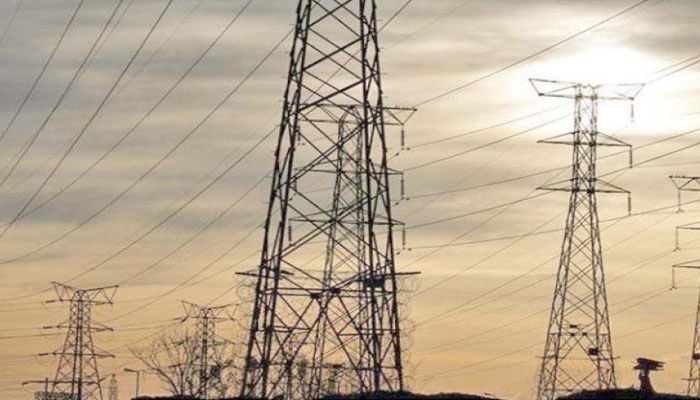Export industry seeks lower wheeling charges to buy cheaper power
ISLAMABAD: Pakistan's export industry, facing turbulence due to a challenging economic outlook, has urged the government to lower wheeling charges for using the national grid's power transmission and distribution infrastructure.
Already burdened by a high tariff of 14 cents per unit, the industry seeks to transition to a competitive trading bilateral contract market (CTBCM) regime. This would enable them to purchase electricity from independent power producers (IPPs) at lower rates.
However, the Central Power Purchase Agency (CPPA-G), a wholly government-owned company, has demanded wheeling charges of Rs.27 per unit. The industry claims this is intended to stifle efforts to transform the power sector from a single buyer model to a multi-buyer system.
"The export industry is already struggling due to the existing 14-cent (Rs.43 per unit) tariff," said a Textile Industry spokesperson. "We want to switch to a multi-buyer system from the single-buyer model to reduce input costs and make our products internationally competitive. However, CPPA-G's demand for Rs.27 per unit wheeling charges virtually cripples the CTBCM regime, which is yet to launch."
NEPRA is currently conducting due diligence on CPPA-G's petition, considering inputs from stakeholders, particularly the export industry. They are working to determine wheeling charges acceptable to both the highly inefficient government-backed power system and industrial players seeking to reduce their input costs through BtB contracts for electricity using the NTDC and DISCOs' T&D infrastructure.
During a recent NEPRA hearing on wheeling charges, the APTMA, the representative body of the textile industry, was not heard. According to an export sector stakeholder, such an important initiative, a change agent against the vested interests of the current status quo, should have been given 2-3 days for proper discussion.
The export industry has pleaded with the regulator for all-inclusive wheeling charges of 1-1.5 cents/kWh for BtB electricity transactions. Additionally, they requested a separate power tariff category without cross-subsidies or stranded costs, as well as an increase in the solar net-metering cap for industrial consumers from 1MW to 5MW. This, they argue, would allow the export sector to build its own power supply and enhance international competitiveness.
Explaining their demand for a higher cap on solar net-metering, the export industry states that it would add 5,000 MW of solar energy at the point of usage, requiring no upfront investment or government guarantees.
They also highlighted the industrial package on incremental electricity consumption, arguing that it will not only address the capacity payment issue but also stimulate economic activity.
The export industry further reminded decision-makers that the EU Carbon Border Adjustment Mechanism (CBAM) will become operational in 2026, impacting textiles and apparel after 2030. This mechanism will impose an effective import duty on the country's exports to the EU based on the emissions generated throughout their production value chain.
To maintain export competitiveness in European markets under CBAM, the industry requires an immediate shift towards zero emissions. Increasing the solar net-metering cap for industrial consumers from 1MW to 5MW will increase the availability of clean energy at the point of usage without any cost to the government.
-
 Michael B. Jordan Gives Credit To 'All My Children' For Shaping His Career: 'That Was My Education'
Michael B. Jordan Gives Credit To 'All My Children' For Shaping His Career: 'That Was My Education' -
 Sun Appears Spotless For First Time In Four Years, Scientists Report
Sun Appears Spotless For First Time In Four Years, Scientists Report -
 Bella Hadid Opens Up About 'invisible Illness'
Bella Hadid Opens Up About 'invisible Illness' -
 Lawyer Of Epstein Victims Speaks Out Directly To King Charles, Prince William, Kate Middleton
Lawyer Of Epstein Victims Speaks Out Directly To King Charles, Prince William, Kate Middleton -
 Microsoft CEO Shares How Gates Doubted $1bn OpenAI Investment
Microsoft CEO Shares How Gates Doubted $1bn OpenAI Investment -
 Milo Ventimiglia Calls Fatherhood 'pretty Wild Experience' As He Expects Second Baby With Wife Jarah Mariano
Milo Ventimiglia Calls Fatherhood 'pretty Wild Experience' As He Expects Second Baby With Wife Jarah Mariano -
 Chinese Scientists Unveil Advanced AI Model To Support Deep-space Exploration
Chinese Scientists Unveil Advanced AI Model To Support Deep-space Exploration -
 Anthropic’s New AI Tool Wipes Billions Off Cybersecurity Stocks
Anthropic’s New AI Tool Wipes Billions Off Cybersecurity Stocks -
 Trump Announces He Is Sending A Hospital Ship To Greenland Amid Rising Diplomatic Tensions
Trump Announces He Is Sending A Hospital Ship To Greenland Amid Rising Diplomatic Tensions -
 'Never Have I Ever' Star Maitreyi Ramakrishnan Lifts The Lid On How She Avoids Drama At Coffee Shops Due To Her Name
'Never Have I Ever' Star Maitreyi Ramakrishnan Lifts The Lid On How She Avoids Drama At Coffee Shops Due To Her Name -
 Inside Prince William’s Plans For Prince Harry: What Will Happen To Duke Once He’s King
Inside Prince William’s Plans For Prince Harry: What Will Happen To Duke Once He’s King -
 Chyler Leigh Pays Moving Homage To 'Grey’s Anatomy' Co-star Eric Dane: 'He Was Amazing'
Chyler Leigh Pays Moving Homage To 'Grey’s Anatomy' Co-star Eric Dane: 'He Was Amazing' -
 Did You Know Tech CEOs Limit Screen Time For Their Own Kids?
Did You Know Tech CEOs Limit Screen Time For Their Own Kids? -
 Matthew Lillard Admits Fashion Trends Are Not His 'forte'
Matthew Lillard Admits Fashion Trends Are Not His 'forte' -
 SpaceX Launches Another Batch Of Satellites From Cape Canaveral During Late-night Mission On Saturday
SpaceX Launches Another Batch Of Satellites From Cape Canaveral During Late-night Mission On Saturday -
 Princess Beatrice, Eugenie Get Pulled Into Parents’ Epstein Row: ‘At Least Stop Clinging!’
Princess Beatrice, Eugenie Get Pulled Into Parents’ Epstein Row: ‘At Least Stop Clinging!’




